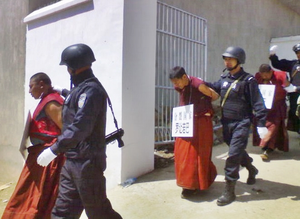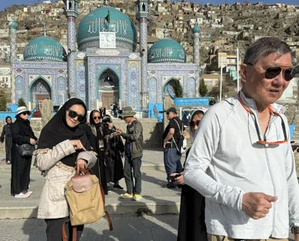Tibetans praise US, Canada for support on 64th founding anniversary of Parliament-in-exile

Dharamsala, Sep 2 (IANS) The Central Tibetan Administration (CTA) on Monday commemorated the 64th founding anniversary of the Tibetan Parliament-in-exile by acknowledging the US and Canada for advocating the right to self-determination.
The Kashag (executive) said in support of the aspirations of the Tibetan people, US President Joe Biden signed the “Promoting a Resolution to the Tibet-China Dispute Act” on July 12 this year.
The Act highlights that “the current policies of the People’s Republic of China are systematically suppressing the ability of Tibetans to preserve their religion, culture, language, history, way of life, and environment”.
The Kashag mentioned in its statement on His Holiness the Dalai Lama’s 89th birthday that the Act recognises the US government’s position on the historical status of Tibet that the Sino-Tibet dispute is unresolved and that it is the official policy of the US government to promote a negotiated resolution to the dispute through dialogue.
The Kashag also acknowledged the unanimous resolution passed by the Canadian Parliament on June 10. This resolution asserts that the Tibetan people and their country have the right to self-determination and are empowered to freely choose their economic, social, cultural, and religious policies without interference from any external power.
The resolution also condemned the Chinese government’s systematic policy implementation of cultural assimilation against Tibetans.
“The aspiration of Tibetan people to preserve our national identity and to develop our own culture cannot be crushed by any form of brute force. More so, it is the important responsibility of Tibetans living in free countries to make every effort so that the Chinese government corrects and ends its misguided and repressive policies in Tibet,” said the Kashag, urging every Tibetan to make collective efforts in unity.
“While we celebrate the Tibetan democracy day, we must also acknowledge that there is still considerable scope for improving our democratic system. In particular, it is the need of the hour to strengthen completion and effectiveness of the laws and regulations that ensure fairness and justice for all,” it said.
The Dalai Lama, who along with many of his supporters fled the Himalayan homeland and took refuge in India when Chinese troops moved in and took control of Lhasa in 1959, views himself as a simple Buddhist monk.
He believes in a “middle-way” approach, meaning greater autonomy for Tibet rather than outright independence.
Reiterating its commitment to non-violence and to pursue the ‘middle-way policy’ — the only way to resolve the China-Tibet conflict based on mutual benefit and negotiation — the Tibetan government in exile, called the Central Tibetan Administration (CTA), has blamed Beijing for the lack of political will to continue with the dialogue process that has remained deadlocked since 2010.
–IANS
vg/dpb





